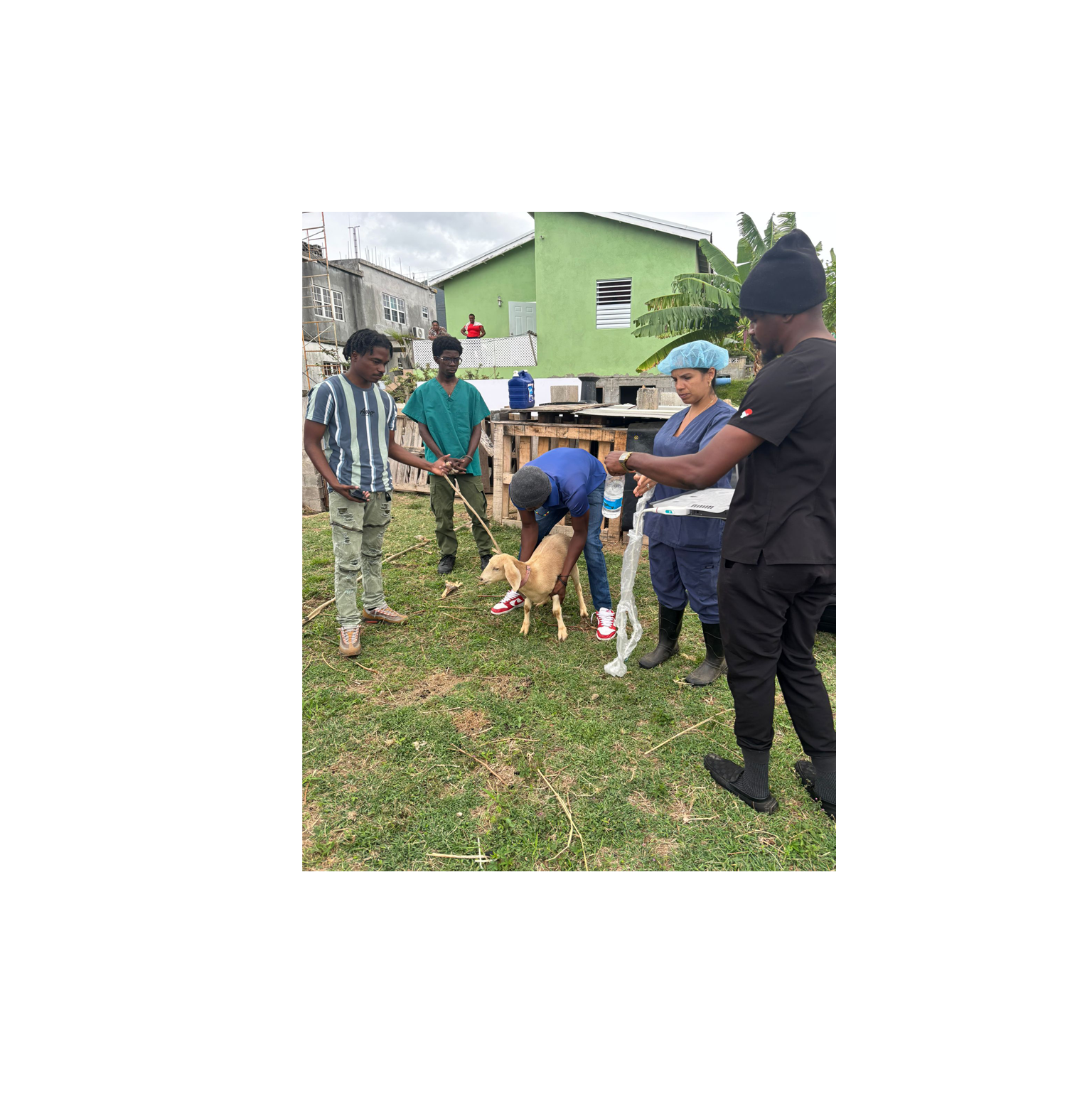Agriculture Department Promotes Youth Involvement in Agricultural and Veterinary Sciences
The Veterinary Services Unit at the Department of Agriculture in St. Kitts and Nevis has recently reinforced its dedication to fostering youth engagement in agriculture and veterinary medicine through a series of practical learning experiences. Over the past two weeks, the Unit has implemented two key initiatives aimed at providing students with firsthand exposure to the realities and opportunities within these crucial fields. This strategic approach recognizes the importance of nurturing young talent to ensure the long-term sustainability and vibrancy of the agricultural sector in the Federation. By offering immersive experiences, the Department aims to inspire a new generation of professionals equipped with the skills and passion to contribute to the nation’s food security and economic prosperity.
The first initiative involved offering a comprehensive shadowing program to four secondary school students, three from Saddlers Secondary School and one from Basseterre High School. This program allowed the students to accompany both extension officers and veterinary officers from the Livestock Division on their regular field operations. This immersive experience extended beyond mere observation, providing the students with active participation in various aspects of livestock care and management. They joined in farm visits, interacting directly with the animals and gaining a practical understanding of their needs. Furthermore, they assisted in clinical examinations and treatments, witnessing firsthand the diagnostic and therapeutic skills required in veterinary practice. This direct engagement provided invaluable insights into the daily challenges and rewards of these professions, potentially sparking enduring interest in agricultural and veterinary pursuits.
The second initiative focused on higher education, targeting students enrolled in the Introduction to Livestock Animal Husbandry course at the Clarence Fitzroy Bryant College (CFBC). On April 10th, the Veterinary Services Unit organized a field trip designed to bridge the gap between theoretical knowledge and practical application in livestock health management. The students were introduced to crucial techniques such as pregnancy diagnosis using ultrasound technology, a vital skill in animal husbandry for breeding management and herd productivity. Furthermore, the session covered various methods of animal castration, a necessary procedure for controlling breeding and improving meat quality. Both closed and open castration methods were demonstrated on goats and pigs, respectively, providing students with a comprehensive understanding of the techniques and their appropriate application depending on the species.
The field trip’s emphasis on active participation ensured a deeper learning experience. Following a demonstration of piglet castration, each student was given the opportunity to perform the surgical procedure themselves under the careful guidance and supervision of experienced veterinary professionals. This hands-on experience allowed them to apply newly acquired knowledge, develop practical skills, and build confidence in handling animals and performing essential livestock management procedures. This active learning approach not only solidified their understanding of the procedure but also provided valuable practical experience, preparing them for future roles in the agricultural sector.
These two initiatives exemplify the Department of Agriculture’s commitment to bridging the gap between academic learning and real-world application. By providing students with opportunities to engage directly with livestock, participate in field operations, and perform essential procedures under professional supervision, the Department is fostering a more profound understanding of the complexities and rewards of careers in agriculture and veterinary medicine. This approach goes beyond traditional classroom learning, providing invaluable practical experience that can inspire and motivate the next generation of agricultural professionals. Through such initiatives, the Department actively contributes to the development of a skilled and knowledgeable workforce capable of meeting the challenges and opportunities of the evolving agricultural landscape.
The Department of Agriculture’s investment in youth development is not merely an investment in the future workforce but also a strategic investment in the long-term sustainability of the agricultural sector in St. Kitts and Nevis. By engaging young people in these practical experiences, the Department is cultivating a deeper appreciation for the importance of agriculture and fostering a sense of responsibility towards its future. These initiatives are crucial for ensuring the continued growth and prosperity of the sector, contributing to food security, economic development, and the overall well-being of the Federation. The Department recognizes its role as a vital link between technical expertise and the future human resource base, facilitating the transfer of knowledge and skills to the next generation of agricultural professionals.
The Department of Agriculture’s proactive approach to youth engagement demonstrates a clear understanding of the need for continuous development and innovation within the agricultural sector. By proactively investing in the education and training of young people, the Department is fostering a future-oriented perspective, ensuring that the sector is equipped to meet the evolving demands of the 21st century. This commitment to nurturing the next generation of agricultural professionals underscores the Department’s dedication to the long-term sustainability and prosperity of the agricultural sector in St. Kitts and Nevis. The continued openness to collaborations and educational initiatives further reinforces the Department’s commitment to fostering a vibrant and resilient agricultural sector, well-positioned for future growth and innovation.
Share this content:












Post Comment